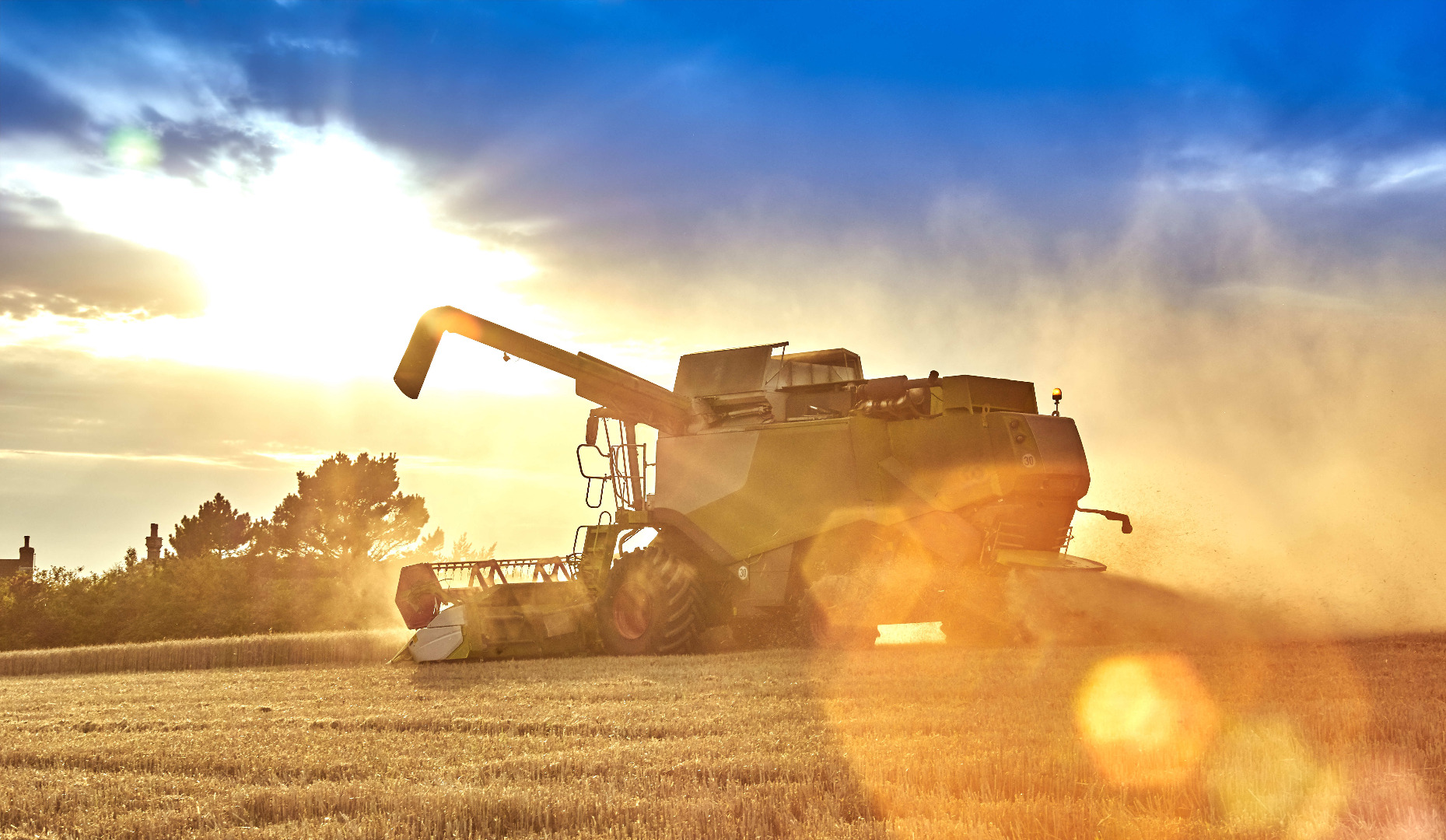
- Soil Association
- Causes and campaigns
- Supporting agritech

How does technology fit into an agroecological future?
Agricultural technology - or Agritech –has tended to receive a high degree of promotion from businesses and Government.
Some of these techniques can offer tangible sustainability within a broader agroecological approach.
However, while new technologies are potentially exciting, and should be approached with an open mind, it is vital that we are clear about the pros and cons of these emerging approaches alongside other innovations in our farming and food systems.
With our commitment to a Ten-Year Transition to Agroecology for climate, nature and health, the key question is will new technologies accelerate or distract from the fundamental transition needed in our farming systems?
This new report, commissioned by the Soil Association from Cumulus Consultants, investigates how technology might influence a transition to agroecological farming and aims to identify the technologies that could support agroecological farming practices and which may stop farmers from transitioning by providing incentives that support more intensive farming.

What is agricultural technology all about?
In recent decades, food and farming systems in the UK have become very tech intensive, through use of tools like combine harvesters, tractors, pesticides, artificial fertilisers and ‘ultra’ food processing. These technologies have emphasised high yields and less labour, and have encouraged standardisation. The result has been a shift from the kinds of mixed farms that one still sees in children books, to farm businesses that are specialised, for example in chicken eggs or cereal crops only, with standardised methods of production. Supply chains have become more centralised, focussed on mass produced key products, like wheat and soya. Many seasonal and exotic foods are available all year round. A shift to new ways of mass production, processing and preservation have turned narrow staples into a diverse array of mass-produced food products.
So, technology has changed farming in the UK and around the world, and the food that ends up on our plates. But tech didn’t so much adapt to meet the needs of our food systems. Largely, our food systems adapted to meet the development of the tech. So new problems have been created as others have been solved; the production and consumption of too much of the wrong foods, the effect this has had on obesity rates, food inequality, the way food waste has become routinised, environmental pollution, increasing antibiotic use in farm animals, degrading soils and extensive GHG emissions, to name a few.
With combined crises in our climate, nature and health, we now need to develop and promote new agricultural and food technologies that are designed to better tackle these crises. And we need to be careful around new technologies that, despite good intentions, work to simply perpetuate the status quo.
UK production of fruits and vegetables has declined, cereals have increasingly been grown for animals instead of humans, and around half of arable land is used to produce just two plants, wheat and barley
Until recently technology has not supported agroecological practices
There is a huge untapped potential for new technologies to aid a transition to agroecology. Agroecology applies the scientific principle of ecology. Rather than a sole focus on production and high yields, it aims to meet broader environmental and societal needs. To succeed in this, a key part is to make the most of the benefits you get from having diversity and complexity in our food systems. So far, this has clashed with what has been a technological push towards intensification, labour reduction, and standardisation.
For example, in agroecology, the question of how to fertilise crops is a wider question about nutrient pollution, soil carbon, soil degradation and crop pests and diseases. The solution becomes complex and context specific – using tools like soil biology, nitrogen fixing legumes, reintroduced livestock, the additions of deep rooting perennial crops, and more. It makes farming more complex, not less complex. Less standardised, not more standardised. It can require more, not less labour. Yields aren’t always lower though, (as studies suggest yield gaps can be closed with the right investment), and the benefits are broad and far ranging.
There is therefore an urgent need to ensure that new and emerging technologies support this more complex, holistic system of farming, as well as a transition to healthier diets.
-
Agroecotech Report: How can technology accelerate a transition to agroecology?
The new report investigates how technology might influence a transition to agroecological farming alongside a sustainable diet shift in the UK over the next ten years.
Read Full Report

Is agritech the answer to our food and farming crisis?
We need to move towards a food system that facilitates the production of less but better meat, more fruit and veg, regenerated soils and wildlife, more trees and healthier diets for all. Emerging agroecological technologies have the potential to support a diverse and resilient future. Examples include:
-
Robotics
This technology may allow us to move away from ever larger tractors that do so much damage in compacting soils and driving field expansion. Robotics for weeding and picking could help us manage much more complex and diverse farms with trees for fruits, nuts, timber and biomass with understoreys of soft fruit and herbs, interspersed with grassland, horticulture or arable crops, with little machines that could navigate through.
-
Algae and insect farming
These developments hold great potential to reduce our reliance on imported soy for animal feed (which drives deforestation and habitat destruction at scale) and to reduce the land pressure (half of cropland) associated with producing animal feed in the UK. Reducing demand for grain-fed industrial livestock products as part of a transition to healthier, more humane and sustainable diets remains of paramount importance.
But Innovation is not all about tech. It’s also about building knowledge and trialling new farming systems, whilst utilising existing practices that can be rapidly scaled up by farmers.
We need greater diversity of breeds, seeds and crops
Diversity is key to innovation. It gives greater resilience in the face of climate and disease risks and underpins greater nutritional diversity which we need for healthier diets. As agroecological farms produce a greater variety of foods, we need processing and supply chains to diversify too, to match up.
We need more support for:
-
Farmer-led innovation
Many of the best ideas in farming come from farmers themselves. Field labs led by farmers in partnership with scientists have an important role to play. The UK spends around £450 million a year on agricultural research and innovation, but as little as 1 percent goes to practical projects led by farmers. Putting just 10 percent of this budget towards these projects could see upwards of 1,000 projects a year led by groups of farmers, with hugely beneficial results.
-
Innovation for low-input agriculture
Given the need to reduce our reliance on pesticides, fertilisers and antimicrobials, crop and animal breeding programmes need to prioritise varieties which are most effective in lower input systems. Currently, this isn’t happening to a great degree. For example, the way varieties are recommended to farmers aren’t based on tests which are good at identifying the best crops for agroecological systems.
-
Greater resilience in our supply chains
Helping local producers join forces increases their buying power. This enables them to compete on price with larger companies, and can improve the resilience and sustainability of our food chains. By helping farmers to compete, this will improve product ranges for customers, through growers working together to diversify their output.
Is agricultural technology safe and ethical?
To avoid repeating mistakes, we need to develop and promote agricultural technology that is designed to fit our food system, not the other way round. So, we must be clear about the goals we are aiming for, and the relative merits of different ways of achieving them.
We need to consider the control by fewer companies in our food system, and the effect this has on how technology is rolled out. And we need to ensure technology supports agroecological aims.
It’s tempting to say we need all the tools in the toolbox, but we must be careful not to support systems that will squeeze out other solutions and consume all available investment. Some tech can lead to ‘lock-in’ to unsustainable systems, despite the best of intentions. For example:
-
Biogas digestors
These can create revenue streams for large-scale indoor dairy, pig and poultry farming and drive expansion of maize farming, which is damaging to soil and biodiversity. So their application and support needs to be careful and considered.
-
Genetic modification such as new ‘gene editing’ techniques
These techniques have a whole range of concerns attached, as well as a great deal of speculation as to their potential benefits. A key problem is their patentability and investment needs, which means use of these technologies has tended to exacerbate, rather than change, currently unsustainable food systems.
What can I do?
- Buy local, organic products when you shop
- Learn how to transform the way you eat at home
- Support farmer led research by becoming a member today
-
Read the report by Cumulus Consultants here: How can Technology Accelerate a Transition to Agroecology
Download Report
-
Learn more about how we support farmers to transition to agroecology
Find out more
In this section...

